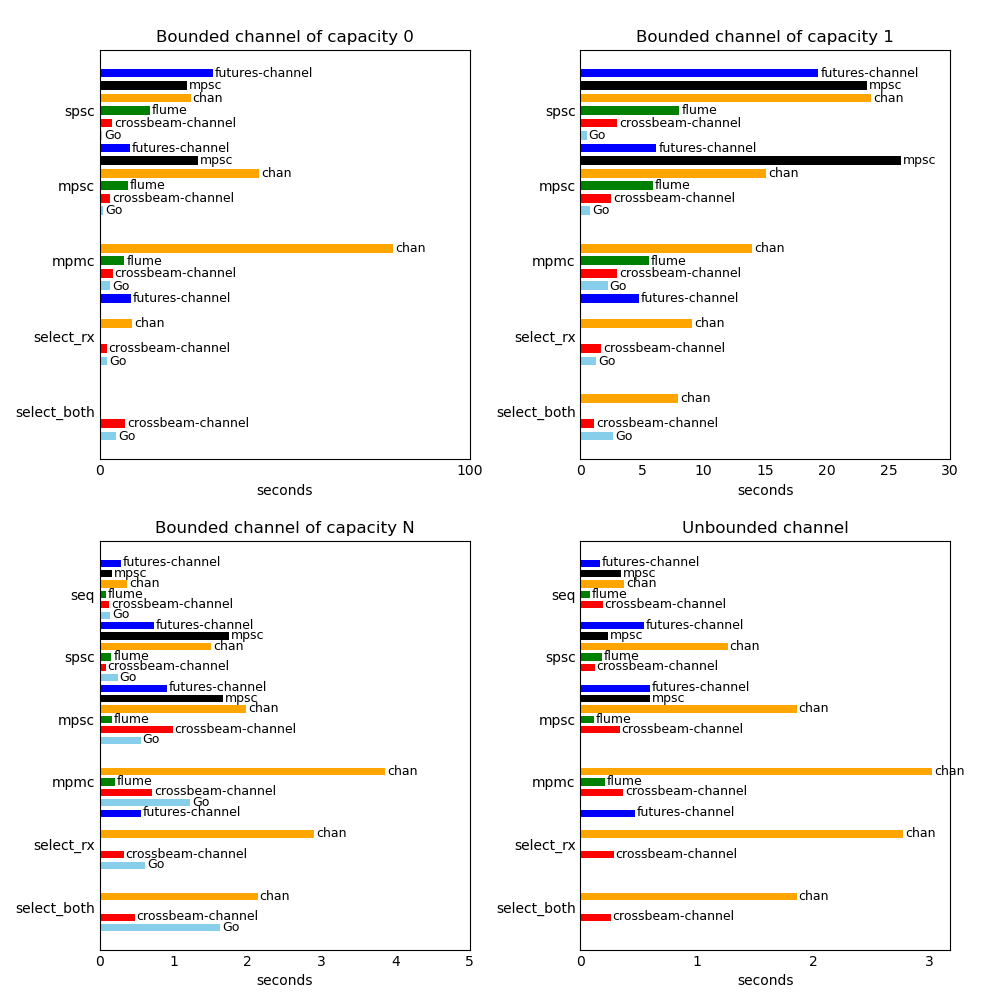37 releases
| 0.11.1 | Oct 19, 2024 |
|---|---|
| 0.11.0 | Aug 16, 2023 |
| 0.10.14 | Jul 21, 2022 |
| 0.10.12 | Mar 10, 2022 |
| 0.2.0 | Jul 31, 2019 |
#10 in Concurrency
4,869,658 downloads per month
Used in 2,509 crates
(553 directly)
80KB
1.5K
SLoC
Flume
A blazingly fast multi-producer, multi-consumer channel.
use std::thread;
fn main() {
println!("Hello, world!");
let (tx, rx) = flume::unbounded();
thread::spawn(move || {
(0..10).for_each(|i| {
tx.send(i).unwrap();
})
});
let received: u32 = rx.iter().sum();
assert_eq!((0..10).sum::<u32>(), received);
}
Why Flume?
- Featureful: Unbounded, bounded and rendezvous queues
- Fast: Always faster than
std::sync::mpscand sometimescrossbeam-channel - Safe: No
unsafecode anywhere in the codebase! - Flexible:
SenderandReceiverboth implementSend + Sync + Clone - Familiar: Drop-in replacement for
std::sync::mpsc - Capable: Additional features like MPMC support and send timeouts/deadlines
- Simple: Few dependencies, minimal codebase, fast to compile
- Asynchronous:
asyncsupport, including mix 'n match with sync code - Ergonomic: Powerful
select-like interface
Usage
To use Flume, place the following line under the [dependencies] section in your Cargo.toml:
flume = "x.y"
Cargo Features
Flume comes with several optional features:
-
spin: use spinlocks instead of OS-level synchronisation primitives internally for some kind of data access (may be more performant on a small number of platforms for specific workloads) -
select: Adds support for theSelectorAPI, allowing a thread to wait on several channels/operations at once -
async: Adds support for the async API, including on otherwise synchronous channels -
eventual-fairness: Use randomness in the implementation ofSelectorto avoid biasing/saturating certain events over others
You can enable these features by changing the dependency in your Cargo.toml like so:
flume = { version = "x.y", default-features = false, features = ["async", "select"] }
Benchmarks
Although Flume has its own extensive benchmarks, don't take it from here that Flume is quick.
The following graph is from the crossbeam-channel benchmark suite.
Tests were performed on an AMD Ryzen 7 3700x with 8/16 cores running Linux kernel 5.11.2 with the bfq scheduler.
Status
Flume is in casual maintenance mode. This means that the crate will continue to receive critical security and bug fixes, but heavy feature development has stopped. If you're looking for a new feature, you're welcome to open a PR and I'll try to find the time to review it.
Flume has been great fun to work on, and I'm happy that it's being used successfully by so many people. I consider the crate to be largely feature-complete at this point (bar small details here and there).
License
Flume is licensed under either of:
-
Apache License 2.0, (http://www.apache.org/licenses/LICENSE-2.0)
-
MIT license (http://opensource.org/licenses/MIT)
Dependencies
~145–550KB
